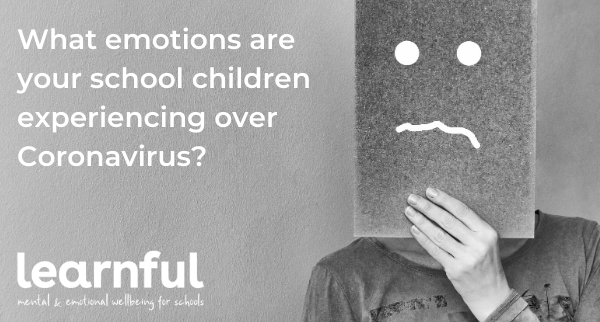Each day I wake, I see more news reporting the spread of Coronavirus.
Children will be hearing about it too.
What education have you provided so far for your pupils about Coronavirus?
Beyond the practical aspects of washing hands and keeping coughs and colds contained – have you discussed the emotional impact of the virus?
How are you feeling about it?
Are you experiencing worry, concern, panic? Something else?
Before you answer with words about your feelings, try this:
- Sit for a moment in a quiet place.
- Take a few longer and deeper rounds of breath and then let your breath find its natural rhythm.
- Stay with it for a few more rounds and then think about the virus.
- The news, the places, the people affected.
- Then bring to mind an image of the children you teach. Perhaps a snapshot of the sea of faces in a whole school in assembly, your class or even a small group.
Ask yourself…
What do they need?
What do they need to know?
What feelings are they likely to be experiencing about the virus? (Guessing how children are feeling is not easy – only they know really which is why this mindfulness exercise is good to repeat with them).
Are you aware of children that might be worrying?
What about what they are seeing/hearing from their parents/carers?
What messages are your children receiving from them? (Just in my circle of parent friends, I know quite a few who experience anxiety over illness, cleanliness and fear of spreading germs). We all know how children learn from observing others.
Now you’ve taken a few moments to notice your own feelings and have ‘zoomed out’ to take in the bigger picture of the emotional needs of your learners, you can decide on the action you’re going to take in school next week.
What emotional responses are you going to discuss? Panic? Anxiety? Calm? Reasoning? This is a perfect opportunity for you to model just that.
Conducting this simple mindful activity covers three of the DfE’s mental wellbeing statutory guidance points:
- that there is a normal range of emotions (e.g. happiness, sadness, anger, fear, surprise, nervousness) and scale of emotions that all humans experience in relation to different experiences and situations
- how to recognise and talk about their emotions, including having a varied vocabulary of words to use when talking about their own and others’ feelings
- how to judge whether what they are feeling and how they are behaving is appropriate and proportionate
Feel. Decide. Discuss. Take relevant action.
Whatever you decide to do next week, please remember to give your children some time to focus inward. Their breath, their thoughts, their feelings. Not trying to change or influence but just time to OBSERVE.
Without that, you are not empowering your children to notice and care for their own emotional health AND that is such a essential skill to develop.
If you are keen to transform mental and emotional wellbeing in your school, then send a message to jo@learnful.co.uk and we can discuss your school needs. Enrolment is now open for Learnful Summer Term School Membership. 10 weeks of whole-school transformational wellbeing practice. Find out more here: https://www.learnful.co.uk/learnful-school-membership-summer-term-2020/

